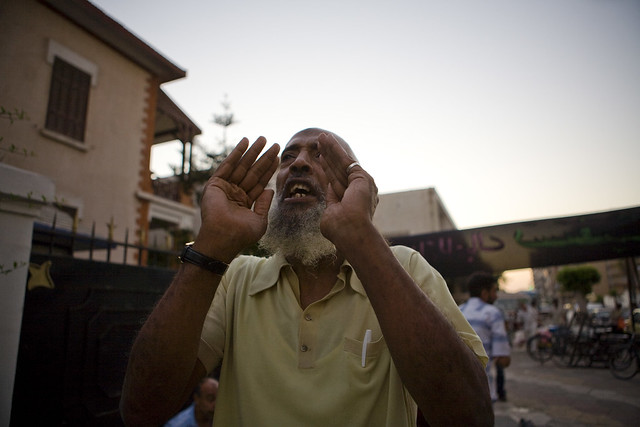I attended yesterday a meeting of strike leaders from a number of industrial and service sectors and URETA activists, part of the ongoing efforts to push for independent labor unions and learn from the Tax Collectors‘ pioneering experience.
I thought of sharing some miscellaneous notes from the meeting:
– A worker speaking in a high-pitched voice: “In Port Said we had no strikes, no nothing (few years ago). But we learned from Mahalla. We read about what they did. Everybody did. They were in the newspapers. People talked a lot, and when one speaks about something, the talk spreads around fast….”
The worker went on explaining how Mahalla was a source of inspiration, and started giving examples of strikes and sit-ins in his company (which I won’t mention for now), but I was then intrigued to hear him addressing other strike leaders:
“I’m glad I met all of you today. We do need national coordination. But why don’t we also have a website? We can put information about all our problems on that website, including our statements. Then instead of distributing the statements in the factories, which is very dangerous, we can just distribute the website address among the workers and tell them to check it on the net. If the workers don’t have computers at home, then they can go to cyber-cafe to check it out.”
– A veteran labor organizer from Giza addressing the strike leaders: “You should not be afraid from the police. They make threats all the time to deter you from doing the right thing. You can be immune only if you have the backing of your fellow workers in the factory. If you have support in the factory or in your workplace they won’t be able to touch you. Look at the leaders of the Tax Collectors. Why didn’t they just “disappear” them? Why didn’t they “send them behind the sun” as they always threaten?”
“Mister, we are already behind the sun,” interrupted a Mahalla textile worker. “Don’t worry, we are not afraid. What have we to lose? Please move on to the next subject.”
– “All men of religion work for State Security police,” thundered a Coptic worker from the Steel Mills who had gone on a hunger strike and only suspended it after SS brought priests from his neighborhood to convince him what he was doing was “ungodly” promising to intervene on his behalf. “I suspended my strike. All promises they gave me turned out to be lies. The priests and State Security have lied to me and do not care about me. I am trying to get the support of my colleagues to solve my problems (with the management). I have no one to seek help from except my colleagues, whether they were Christians or Muslims.”



